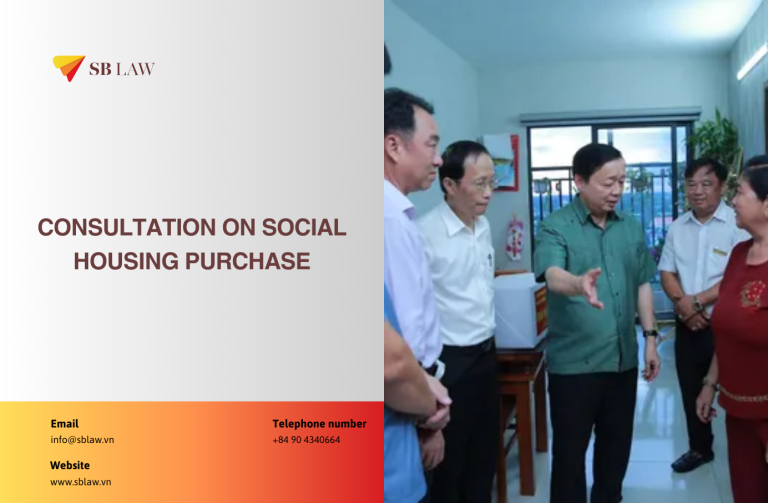
1. The number of overtime hours in a month must not exceed 60 hours
On March 23, 2022, the National Assembly Standing Committee issued Resolution No. 17/2022/UBTVQH15 on the number of overtime hours in a year and a month for employees in the context of the prevention and control of the Covid-19 epidemic and economic and social recovery and development.
Accordingly, in Clause 1, Article 1 of this Resolution, the number of overtime hours in a year is specified as follows:
In case the employer needs and gets the employee's consent, he/she may use the employee to work overtime for more than 200 hours but not more than 300 hours in a year, except for the following cases:
- Employees from full 15 to under 18 years old;
- The employee is a mildly disabled person with a working capacity reduction of 51% or more, severe disability, or particularly severe disability;
- Employees who do heavy, hazardous occupations or jobs, or especially heavy, hazardous, or dangerous jobs;
- Female employees are pregnant from the 7th month or the 6th month if working in highland, deep-lying, remote areas, border areas, or islands;
- Female employees who are raising children under 12 months old.
Clause 1 of this Article does not apply to the case specified in Clause 3, Article 107 of the Labor Code.
The number of overtime hours in a month is regulated: In case the employer is allowed to use the employee to work overtime for a maximum of 300 hours in a year, upon demand and with the employee's consent, the employer may use the employee to work overtime for more than 40 hours but not exceeding 60 hours in a month.
This Resolution takes effect from April 1, 2022, except for the provisions in Clause 1, Article 1 of this Resolution. The provisions in Clause 1, Article 1 of this Resolution take effect from January 1, 2022.
2. Reduce 50% of the environmental protection tax on gasoline from April 1, 2022
On March 23, 2022, the National Assembly Standing Committee issued Resolution 18/2022/UBTVQH15 on the environmental protection tax rate for gasoline, oil, and grease. Accordingly, the Resolution stipulates a 50% reduction of the environmental protection tax rate for gasoline (except ethanol), diesel oil, fuel oil, lubricants, and grease from April 1, 2022, to the end of December 31, 2022; reducing 70% of the environmental protection tax rate for kerosene from April 1, 2022, to the end of December 31, 2022.
Specifically, the environmental protection tax rate after being reduced is as follows:
- Gasoline (except ethanol) is 2,000 VND/liter;
- Diesel oil is 1,000 VND/liter;
- Kerosene is 300 VND/liter;
- Fuel oil is 1,000 VND/liter;
- Lubricant is 1,000 VND/liter;
- Grease is 1,000 VND/kg.
Particularly for the environmental protection tax rate for jet fuel: Continue to apply the level of 1,500 VND/liter as prescribed in Resolution 13/2021/UBTVQH15 dated December 31, 2021.
This Resolution takes effect from April 1, 2022.
3. Management and use of revenue from ownership conversion of enterprises and public non-business units
On December 31, 2021, the Government issued Decree No. 148/2021/ND-CP stipulating the management and use of revenues from the conversion of ownership of enterprises, public non-business units, and revenues from the conversion of enterprise’s transfer of state capital and the difference between equity capital is larger than the charter capital at the enterprise. Accordingly, this Decree stipulates the management of revenue sources, including:
- Revenues from equitization and other forms of ownership arrangement and conversion of enterprises in which 100% of charter capital is held by the State (level 1 enterprises), equitization of public non-business units (revenue from converting ownership of enterprises, public non-business units).
- Income from the transfer of State capital invested in joint-stock companies, limited liability companies with two or more members, from the transfer of the right to buy shares to issue additional shares concerning the State capital portion, and the right to contribute to State capital. at the enterprise.
- Collect the difference between equity capital greater than the charter capital in operating tier-1 enterprises.
- Revenues from the transfer of State capital invested in enterprises assigned by the Prime Minister to the State Capital Investment Corporation to transfer capital to be remitted to the State budget.
Revenues from enterprises and central public non-business units shall be remitted into the central budget; revenues from enterprises and local public non-business units shall be remitted to the local budget. Tax authorities shall collect according to the provisions of the law on the state budget, the law on tax administration, and the provisions of this Decree.
Balance the revenues in the budget estimates for state capital investment in enterprises and investment in key national and local infrastructure projects.
Decree 148/2021/ND-CP takes effect from April 1, 2022.
4. Guidance on restructuring enterprises that are not eligible for equitization
On February 8, 2022, the Ministry of Finance issued Circular No. 05/2022/TT-BTC guiding the restructuring of enterprises that are not eligible for equitization and transferring lots of shares with receivables due to The state holds 100% of the charter capital with the function of buying, selling and handling debts.
Accordingly, the restructuring plan is implemented on the principle of consensus between the agency representing the owner of the restructured enterprise and the Vietnam Debt Trading One Member Limited Liability Company (Vietnam Debt Trading Company) and/or creditors participating in the restructuring.
Vietnam Debt Trading Company is entitled to actively negotiate debt purchase with creditors and propose a plan to restructure the enterprise by the provisions of law and only decide to buy debt after reaching an agreement with the owner's representative agency and have the results of debt purchase negotiations with the creditors of the restructured enterprise.
Regarding the financial handling of restructured enterprises, the handling must be associated with the restructuring plan approved by the owner's representative agency. Debt repayment obligation reduction must be attached to the fact that Vietnam Debt Trading Company converts debts and assets into contributed capital in the enterprise and does not change the liability of organizations or individuals that have caused financial losses before.
Regarding the handling of shares that are not sold out:
- In case the number of shares is not sold to investors by the agreed method after the public auction is unsuccessful or the number of shares offered for sale in the public auction is not sold as prescribed, the Board of Directors shall only the equitization/restructuring director shall consider and decide on an offer to sell to Vietnam Debt Trading Company and other creditors on the principle of agreement and the selling price of shares not lower than the par value.
- In case the Vietnam Debt Trading Company and its creditors still do not buy all the shares offered for sale as prescribed, the Equitization/Restructuring Steering Committee shall report to the owner's representative agency to adjust the regulations scale and structure of charter capital to convert the restructured enterprise into a joint-stock company before holding the first General Meeting of Shareholders.
Circular 05/2022/TT-BTC takes effect from April 1, 2022.
5. Instructions on handing over, receiving, and handling debts and assets except for business ownership conversion
On February 9, 2022, the Ministry of Finance issued Circular No. 07/2022/TT-BTC guiding the handover, receipt, and handling of debts and assets excluded when converting business ownership, applications for public service positions, and as designated by the Government and the Prime Minister.
Accordingly, Circular 07 guides several contents on handling received debts and assets as follows:
- Debt Trading Company implements the forms of dealing with debts and excluded assets received according to the provisions of Decree 129/2020/ND-CP and the Company's financial regulations, ensuring the principle of publicity, is transparent and consistent with current regulations for each form of debt and asset handling.
For assets being land use rights, the handling must comply with the provisions of the law on land.
- For assets (including debt security assets) with a residual value of VND 100 million or more in the accounting books, the Debt Trading Company hires an organization with the function of price appraisal to determine the value. to organize the sale of assets by the prescribed auction method.
- For assets (including assets to secure debts) with a residual value of less than VND 100 million in the accounting books, the Debt Trading Company shall decide to choose to sell by auction method or by agreement according to law. price is not lower than the market price.
In case the property is not traded on the market, the Debt Trading Company hires an organization with the price appraisal function to determine the price as a basis for selling the asset and is responsible for deciding the selling price of the asset.
Accordingly, during the custody process, with property loss or shortage due to objective or force majeure causes, certified by the owner's representative agency to be sent to the Debt Trading Company (for enterprises that are not converted) or the People's Committee of the commune at the place of loss or shortage of assets (for enterprises that have been officially converted), the enterprise keeping the assets is not required to pay compensation. In the above case, the Debt Trading Company shall exclude from the list of received assets corresponding to the amount of lost or shorted assets.
In addition, for property loss or deficiency due to other causes, the enterprise must clarify the responsibilities of relevant organizations and individuals to handle compensation at market prices based on the determined price of the company. organizations with the function of valuation for similar properties. If there is no similar property at the time of settlement, compensation will be made at the book value of the property.
Circular 07/2022/TT-BTC takes effect from April 1, 2022.
6. Regulations on General report of financial information according to the convention
On February 14, 2022, the Ministry of Finance issued Circular 10/2022/TT-BTC regulating the report on the General report of financial information according to the convention. This Circular stipulates the form, principles, and methods of preparing a General report of financial information according to the convention and the calculation method of the average equity ratio in the formula for calculating the ratio of profit after tax to equity ownership (ROE) for objects and purposes by the Government's Decree No. 155/2020/ND-CP dated December 31, 2020, detailing the implementation of several articles of the Securities Law (hereinafter referred to as “Decree No. 155/2020/ND-CP”).
Accordingly, the collection of financial information according to convention includes the following steps:
- Identify unadjusted financial information sources used to synthesize financial information according to the convention;
- Record the pro forma adjustments to the unadjusted financial statements to present the pro forma financial statements;
- Presenting financial information results according to convention and accompanying explanations.
For enterprises being the parent company that must prepare consolidated financial statements, the unadjusted information used to prepare the above two statements is the Consolidated Financial Statements (Consolidated Balance Sheet). and Consolidated Income Statement (Consolidated Income Statement).
Circular 10/2022/TT-BTC takes effect from April 1, 2022.
7. Regulations on rules of origin of goods in the Regional Comprehensive Economic Partnership (RCEP) Agreement
On February 18, 2022, the Minister of Industry and Trade signed and promulgated Circular No. 05/2022/TT-BCT stipulating the Rules of Origin of goods in the Regional Comprehensive Economic Partnership.
Circular No. 05/2022/TT-BCT stipulates the contents of the Rules of Origin, including cases in which goods are considered to be originating, cumulative, De Minimis, and processing simple, direct shipping, inspection, and certification mechanism of goods, ... The content of these provisions in the RCEP's Rules of Origin is generally not different from that of the ATIGA and some ASEAN+1 agreements to which Vietnam is a member. Originating goods of Vietnam exported to member countries are considered for preferential tariff treatment in the framework of the RCEP Agreement when a C/O is issued by the provisions of this Circular.
Originating goods imported into Vietnam from member countries are considered for preferential tariff treatment in the framework of the RCEP Agreement when submitting C/O or self-certification of origin of goods issued by exporters release conditions.
Also in Circular No. 05/2022/TT-BCT, the Ministry of Industry and Trade has internalized the provisions on tax differences due to some countries in the RCEP bloc such as China, Korea, Japan, Indonesia, The Philippines, Thailand, and Vietnam apply different import tax rates for the same product to the partner countries.
Circular No. 05/2022/TT-BCT takes effect from 04/04/2022.
8. Amendment and supplementation of regulations on consideration, verification, and approval of foreign debt loans
On February 14, 2022, the Ministry of Finance issued Circular No. 09/2022/TT-BTC amending and supplementing several articles of the Regulation on consideration, verification, and approval of foreign debt loans by the method of self-borrowing and self-paying of enterprises in which more than 50% of charter capital is owned by the State, promulgated together with Circular No. 153/2014/TT-BTC dated October 20, 2014, of the Minister of Finance.
Accordingly, the subjects of application of Circular 153/2014/TT-BTC are amended, including the owner's representative agency; enterprises with 100% charter capital held by the State, excluding enterprises being credit institutions; and related agencies, organizations, and individuals.
In addition, some conditions for consideration, verification, and approval of foreign loans have been revised. Specifically, projects using foreign loans must serve production and business activities in the main business lines of the enterprise, are invested by the enterprise, and be included in the 5-year investment and development plan. annual business plan of the enterprise.
Circular 09/2022/TT-BTC takes effect from April 1, 2022.
9. New points in regulations on an independent audit of credit institutions and foreign bank branches
On December 31, 2021, the Governor of the State Bank issued Circular No. 24/2021/TT-NHNN amending and supplementing some articles of Circular No. 39/2011/TT-NHNN dated December 15/12/2011 of the Governor of the State Bank on regulations on an independent audit of credit institutions, foreign bank branches.
This Circular stipulates the independent audit of credit institutions and foreign bank branches.
Circular 24/2021/TT-NHNN also amends and supplements Clause 2, Article 8 on an independent audit of the operation of the internal control system of credit institutions and foreign bank branches, with at least the following details:
- Auditing the internal control system of the credit institution, foreign bank branch (including internal mechanisms, policies, processes, and regulations) in compliance with current laws, regulations of the State Bank on the internal control system of credit institutions, foreign bank branches.
- For the contents of the internal control system which have been audited for compliance without any change, it is not required to re-audit such content;
- Auditing the performance of the internal control system for the preparation and presentation of financial statements;
At the same time, Circular 24/2021/TT-NHNN also amends and supplements Clause 2, Article 10 on independent audit results. Specifically, the audit report for financial statements of credit institutions, and foreign bank branches must comply with the provisions of the law on independent audit, accounting standards, Vietnamese auditing standards, and other relevant laws.
This Circular takes effect from April 15, 2022.
10. Supporting tourism workers to learn vocational training 1.5 million VND/month
On February 22, 2022, the Ministry of Finance issued Circular 12/2022/TT-BTC guiding the content and spending levels from the state budget to perform the task of promoting, advertising, and supporting tourism development of tourism development assistance fund.
Accordingly, Circular 12/2022/TT-BTC stipulates that tourism businesses and organizations will be partially supported with funding for training, fostering, and improving vocational skills for tourism workers. with the following amount:
Participants in vocational training courses for up to 3 months are supported based on the tuition fees charged by the vocational training institution and the actual training duration, but not exceeding 4.5 million VND/person/course.
For participants of vocational training courses over 3 months, the support is not more than 1.5 million VND/month and the support period is not more than 6 months.
This Circular takes effect from April 9, 2022.
*********
Note: This Legal Bulletin is not considered to be SB Law's legal advice on any case. The content of this Newsletter focuses solely on the provision and citation of important information, most notably for the legal issue mentioned at the time of publication. SB Law will not assume any responsibility in connection with the citation, or use of part or all of the content of this Newsletter for any purpose other than the purpose of referencing or updating information. In case of need of legal advice, please contact SB Law for detailed instructions.




